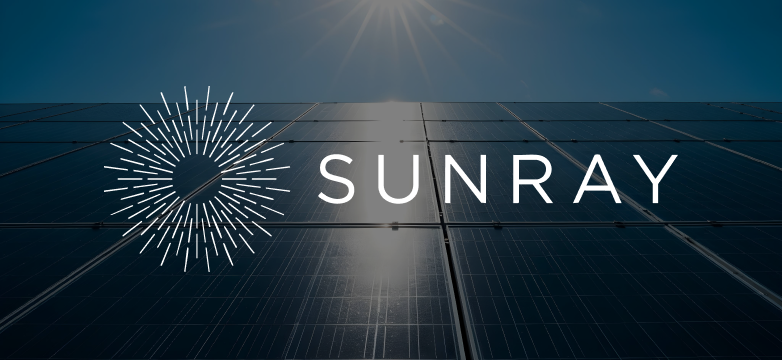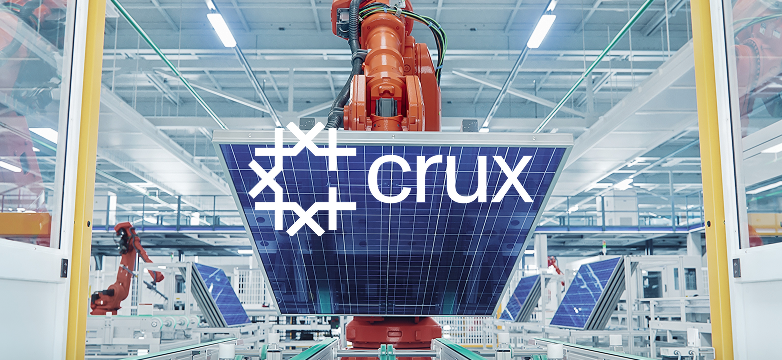Crux's network and expertise helped Rivian ensure success in a new market

About Rivian
Rivian is an American automotive manufacturer that develops and builds category-defining electric vehicles and accessories. The company creates innovative and technologically advanced products that are designed to excel at work and play with the goal of accelerating the global transition to zero-emission transportation and energy.
Rivian vehicles are built in the United States and are sold directly to consumer and commercial customers. The company provides a full suite of services that address the entire lifecycle of the vehicle and stay true to its mission to keep the world adventurous forever. Whether taking families on new adventures or electrifying fleets at scale, Rivian vehicles all share a common goal — preserving the natural world for generations to come.
Entering the transferable tax credit market
Rivian commissioned and operates a 2.8-MW wind turbine at its manufacturing plant in Illinois, making it eligible for the Section 48 investment tax credit (ITC). The turbine, along with Rivian’s solar charging yard, generates enough energy annually to provide every R1 vehicle with its first charge entirely from on-site renewable energy. The project, and the associated tax credit, reduced Rivian’s operational energy spend and represents a milestone on the company’s path to providing access to 100% renewable energy for every mile driven.
Because the transferable tax credit market is so new and the project size was modest, Rivian knew that having support tapping into the market would be essential. It needed a partner with the right technology and access to a network of corporate buyers who would be interested in its tax credits. Rivian found both in Crux. After listing its credits on Crux, Rivian was able to quickly source a buyer and complete the transaction.
Prior to the passage of the Inflation Reduction Act in August 2022, Rivian would have had to source a buyer via tax equity markets. For a small volume of credits like those from a single wind turbine, a tax equity deal wouldn’t have been realistic.
Benefits of “comparison shopping” for tax credit transfer transactions
In addition to the ITC from its wind turbine, Rivian also had ITCs for its 2023 DC fast-charging projects. Rivian intended to sell these ITCs but faced regulatory and market uncertainty in the absence of guidance on EV charging credits from the Internal Revenue Service (IRS).
Once again, Rivian turned to Crux as a partner. By tapping into the largest network of buyers and intermediaries, Rivian was able to drive a competitive bidding process. With multiple buyers interested, the auto manufacturer secured a higher price, maximizing the value of its credits. That matches market trends — in the 2023 Transferable Tax Credit Market Intelligence Report, Crux found that, on average, sellers that drive a technology-enabled, competitive bidding process saw a 3-6% increase in price.
Using Crux’s suite of due diligence and transaction documents also helped Rivian drive an efficient transaction. Crux’s due diligence checklist is informed by more than 35 leading tax, law, and financial advisors and insurers. The checklist and standard transaction documents streamlined the deal process, ensuring that all necessary steps to effectively identify and mitigate risk were taken.
Planning for success while waiting for final guidance
In both cases, Crux helped Rivian think through how to structure the tax credit transaction in the absence of technology-specific guidance from the IRS.
In the case of the wind ITC, Rivian believed it qualified for the domestic content adder. Both seller and buyer agreed to wait until the IRS issued guidance on domestic content qualifications. In the meantime, Crux helped Rivian think through how to structure the transaction to ensure efficiency and simplicity once guidance was released and the domestic content adder was secured.
Similarly, Crux helped Rivian structure the deal for its EV charging ITC while guidance was still forthcoming. The IRS’ 30C alternative fuel vehicle refueling tax credit guidance came out in September 2024, during the middle of Rivian’s transaction, giving the credit market much-needed certainty for future transactions. The upfront work to structure the deal led to a smoother process and ultimately a successful deal.
Transferability opens access to new entrants and technologies
Tax credit transferability has become a key tool for companies seeking to efficiently monetize tax credits related to clean energy project development and manufacturing. As Rivian demonstrates, transferability offers an accessible option for smaller credits and for an expanded list of technologies. By improving the project economics, transferability helped Rivian advance its goals of electrifying transportation and the development of a carbon-free energy grid. Crux has seen increased interest in 30C tax credits from both buyers and sellers since the IRS released its final guidance.
Tax credit transfers are a growing market — Crux’s 3Q 2024 Market Update estimates that around $7-7.5 billion worth of tax credit deals closed in the third quarter alone. The total market is on track to meet or exceed Crux’s forecasted transaction volume of $22-25 billion in 2024. Newer credit categories, such as EV charging infrastructure, advanced manufacturing, and nuclear, are comprising a growing share of the overall transfer market.
More than $25 billion in tax credits spanning nearly every transactable clean energy technology has been listed for sale on Crux since the platform’s launch in 2023. If you’d like to learn more about Crux and engage in the growing market for transferable tax credits, get in touch.






